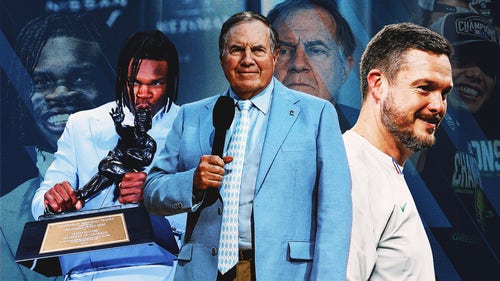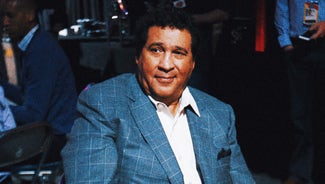COVID-19 remains biggest opponent for Big Ten football teams
PISCATAWAY, N.J. (AP) — The coronavirus pandemic was considered by many coaches to be the biggest opponent for Big Ten Conference teams coming into this virus-delayed football season, and it certainly has been.
With the annual bragging rights
And that's just the games. The opening months of the season have seen Purdue coach Jeff Brohm, Wisconsin coach Paul Chryst and Maryland coach Mike Locksley test positive for COVID-19.
Because of federal laws limiting what the conference’s 14 universities can say about the health of college athletes, it’s hard to say how many have been taken off the field by the virus.
Here is just a snapshot:
— Rutgers had 30 players sidelined during a summer outbreak.
— Minnesota went into a game last week with 61 scholarship players. (FBS programs are allowed 85 scholarships on their roster.)
— Illinois was missing roughly a dozen players early in the season, including its starting quarterback.
— Maryland had to pause its program because of positive tests and close contact restrictions. A positive test requires a player to isolate for 21 days.
Just getting to this point has been a journey. The conference called off the season in August.
Fans got their football, but there it's been a struggle for players and coaches.
The pandemic is the first thing Rutgers coach Greg Schiano discusses at the start of his daily meetings with players. His message after last weekend brought the picture into focus. Eighteen out of 62 scheduled Division I games were canceled or postponed, so 36 teams didn't get a chance to play.
He continues to dispense the medical advice heard around the country since March: Wear your mask, wash your hands frequently and practice social distancing.
“What we try to say is we got to take care of here," Schiano said. “We can’t take care of everywhere. But if we take care of our business and we get a little lucky and we’ll be able to play our whole season, that’s really what we want to do.”
Wisconsin's program has been hit harder than any other in the league, seeing three games called off. It lost matchups against Nebraska (Oct. 31) and Purdue (Nov. 7) after an outbreak on campus. The Minnesota cancellation, which came after a spike among Gopher players, means the
When Wisconsin officials announced on Nov. 3 the Purdue game would be scrapped, the team had 27 active cases involving 15 players and 12 staffers.
“I 100% think it’s been worth the different things that have been thrown at us, testing every day and stuff like that," senior Badgers defensive end Isaiahh Loudermilk said. "I would do anything to have this season. I’m sure that’s how a lot of guys are. The main thing is staying safe, which is why a lot of guys don’t really do much. We’re just kind of stuck to our room when we leave this facility. That’s kind of just the sacrifice we have to make.”
Counting injuries, Minnesota coach P.J. Fleck was missing 22 players for the 34-31 win over Purdue last weekend.
Fleck said one of the toughest things for his players is getting a call saying their test came back positive.
“It challenges you. It does everything it can to test your patience, and it tests your commitment to the process,” Fleck said. "It tests your nerves. It tests your anxiety. It tests your culture. It tests everything that you are as a coach and a man, because it is minute by minute.”
It's all part of the new reality for players and coaches who are working under new rules. The meeting room is many times a virtual one. Hugs and pats on the back are now air pumps for the most part.
“This is one of the hardest years,” Fleck said. "I think every coach would sit there and say that.”
Maryland had home games against No. 3 Ohio State and Michigan canceled after Locksley and several players tested positive. The Terrapins returned to the practice field Monday and hope to play Saturday against No. 12 Indiana.
However, the momentum generated by consecutive wins over Minnesota and Penn State has been lost.
“We knew heading into this adjusted season that there could be hiccups along the way,” Locksley said. “Every week as we prepare, we prepare for two opponents: our football opponent and COVID.”
Even the non-football issues are a challenge.
Ohio State and Rutgers are having team meals instead of letting players go home to eat.
Buckeyes coach Ryan Day said it's a sacrifice made by the players that fans don't see.
“It’s being part of a family, and a brotherhood that’s trying to do something special,” Day said. "But they’re not playing in front of 100,000 people, they’re not seeing their family after the game, they’re not seeing their friends, they’re not getting that instant feedback. And that matters. It just does.”
___
AP Sports Writers Dave Campbell, Michael Marot, Dave Ginsburg, Steve Megargee, Eric Olson, Mitch Stacy and Larry Lage contributed to this report.
___
More AP college football: https://apnews.com/tag/Collegefootball and https://twitter.com/AP_Top25








